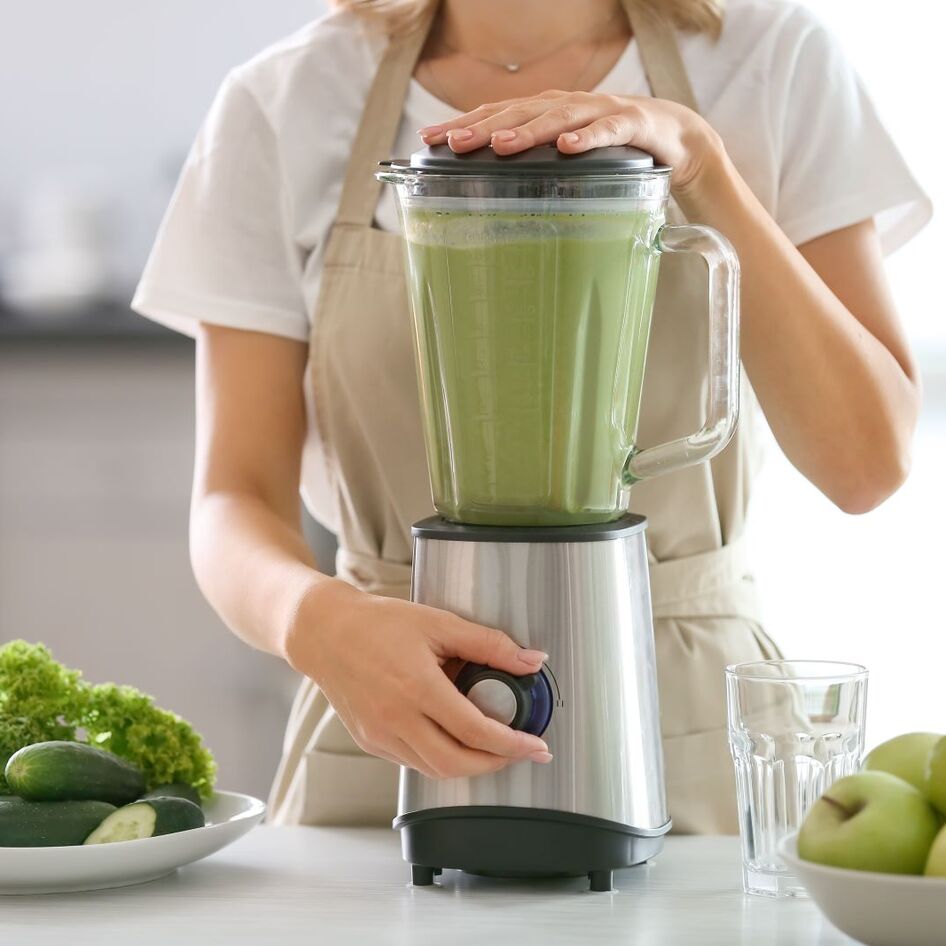Terms such as “soy milk” and “almond milk” have long been part of common parlance. This month, the United States Food and Drug Administration (FDA) issued draft guidance on labeling dairy alternatives in which it officially recognized these “milk” terms as appropriate on labels for products that do not contain dairy.
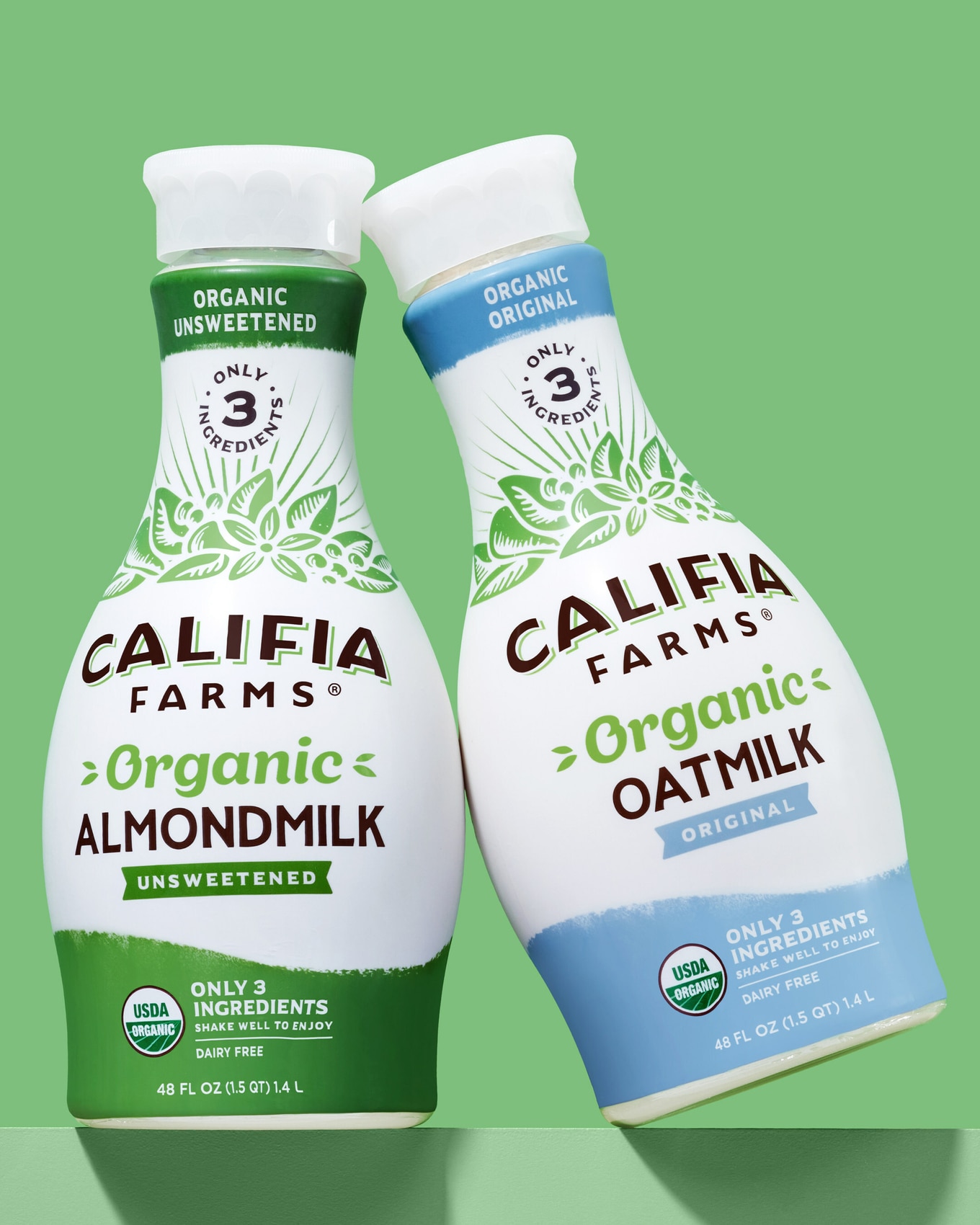
Califia Farms
However, the recognition comes with a recommendation that companies using these terms include voluntary nutrition statements that compare vegan milk to dairy milk as a standard—which has sparked widespread opposition.
What would that look like? The FDA suggests using the terminology “contains a lower amount of [insert nutrient] than milk.” The FDA arrived at this recommendation from the current Dietary Guidelines, which still promote the frequent consumption of dairy products, despite continued pushback from groups citing the recommendation as problematic for various reasons.
“Despite acknowledging consumers’ familiarity with plant-based milks, the guidance misguidedly admonishes companies to make a direct comparison between their plant-based milks and cow’s milk,” Madeline Cohen, Senior Regulatory Attorney for nonprofit Good Food Institute (GFI), said in a statement.
“The guidance is premised on the idea that consumers are somehow confused by plant-based milks’ nutrition, despite the fact that FDA already requires key nutrients to be included on the Nutrition Facts panel,” Cohen said.
Moreso, Cohen points out, dairy milk comes in variable options such as 2-percent reduced-fat chocolate milk, which makes the idea of comparing nutritional values against a dairy standard dubious at best.
 Pexels
Pexels
“The guidance compares plant-based milks to one standardized milk product even though FDA has never required any particular nutrient content for cow’s milk,” Cohen said. “Moreover, the guidance urges disclosures about nutrients that are not under-consumed by Americans, such as magnesium, and even nutrients that are overconsumed by some groups, such as protein.”
“This approach incentivizes companies to use less descriptive terms, such as ‘drink’ or ‘beverage’—which FDA recognizes are unappealing to consumers—rather than well-understood and consumer-preferred terms like ‘oat milk,” Cohen said.
Consumers not confused about vegan milk
The popularity of dairy alternatives have boomed in recent years. The FDA points out that while in 2010, only one-fifth of US households purchased plant-based milks, by 2016, the ratio of households had grown to one-third—with sales totaling $1.5 billion that year. By 2020, the plant-based milk market surged to $2.4 billion in retail sales.
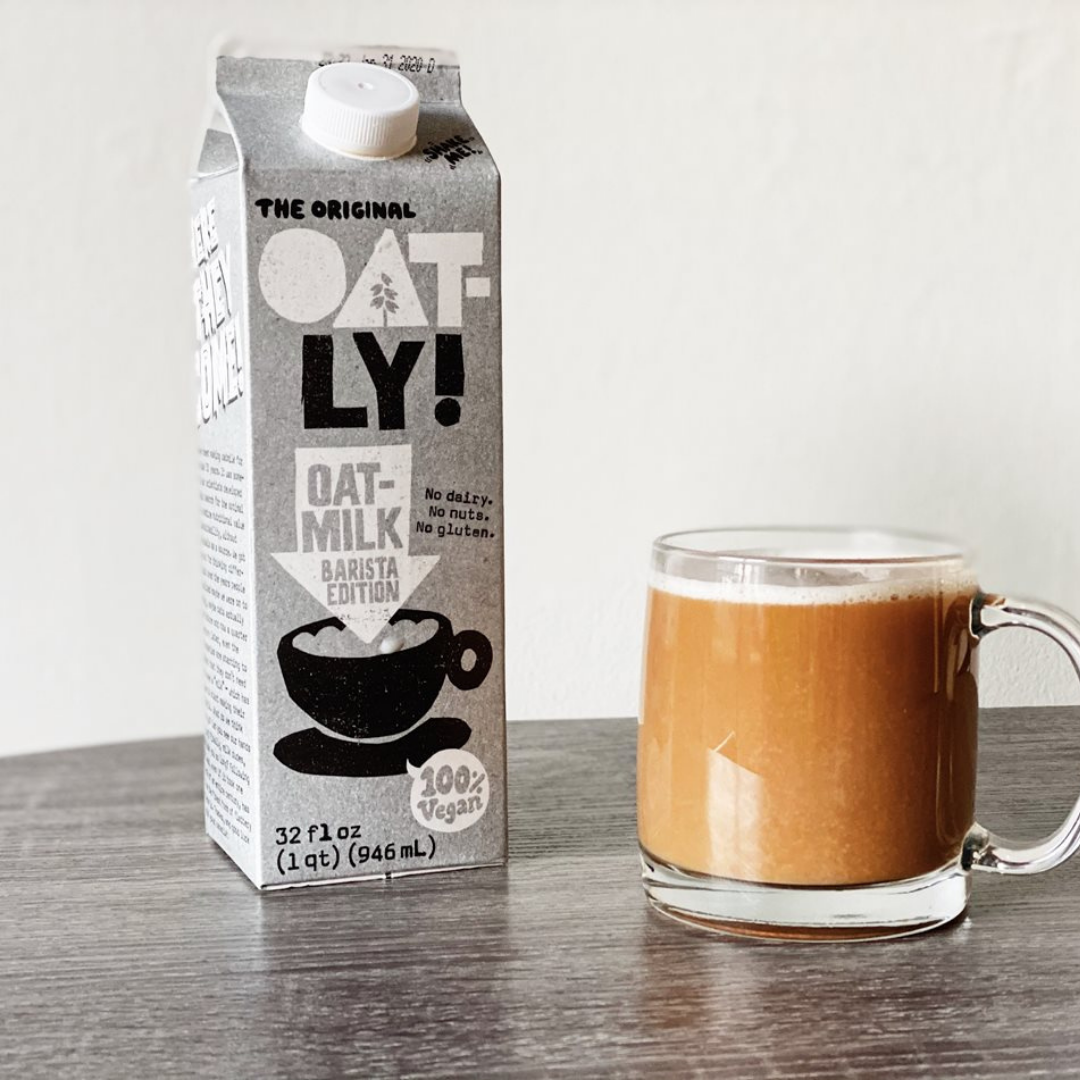 Oatly
Oatly
During this time of growth, politicians from dairy-producing states banded together to propose legislation—called the “Dairy Pride Act”—that would limit the usage of so-called “dairy terms” on plant-based products, citing consumer confusion around labels. However, in its recently issued draft guidance, the FDA made clear that consumers are not confused about these terms.
“Focus groups commissioned and conducted by FDA suggested that ‘milk’ is strongly rooted in consumers’ vocabulary when describing and talking about plant-based milk alternatives,” the FDA stated. “The focus groups indicated that most participants were not confused about plant-based milk alternatives containing milk and refer to plant-based milk alternatives as ‘milk.’”
This recognition by the FDA makes it clear that the Dairy Pride Act was not motivated by protecting consumers from confusion but rather protecting dairy industry profits while limiting corporate free speech.
While it is true that the vast array of plant-based milks—made from bases such as oats, soy, macadamia nuts, and more—vary in nutritional value, comparing them to a dairy standard in the way the FDA draft guidance suggests is not attuned to how modern consumers make dairy-free purchases.
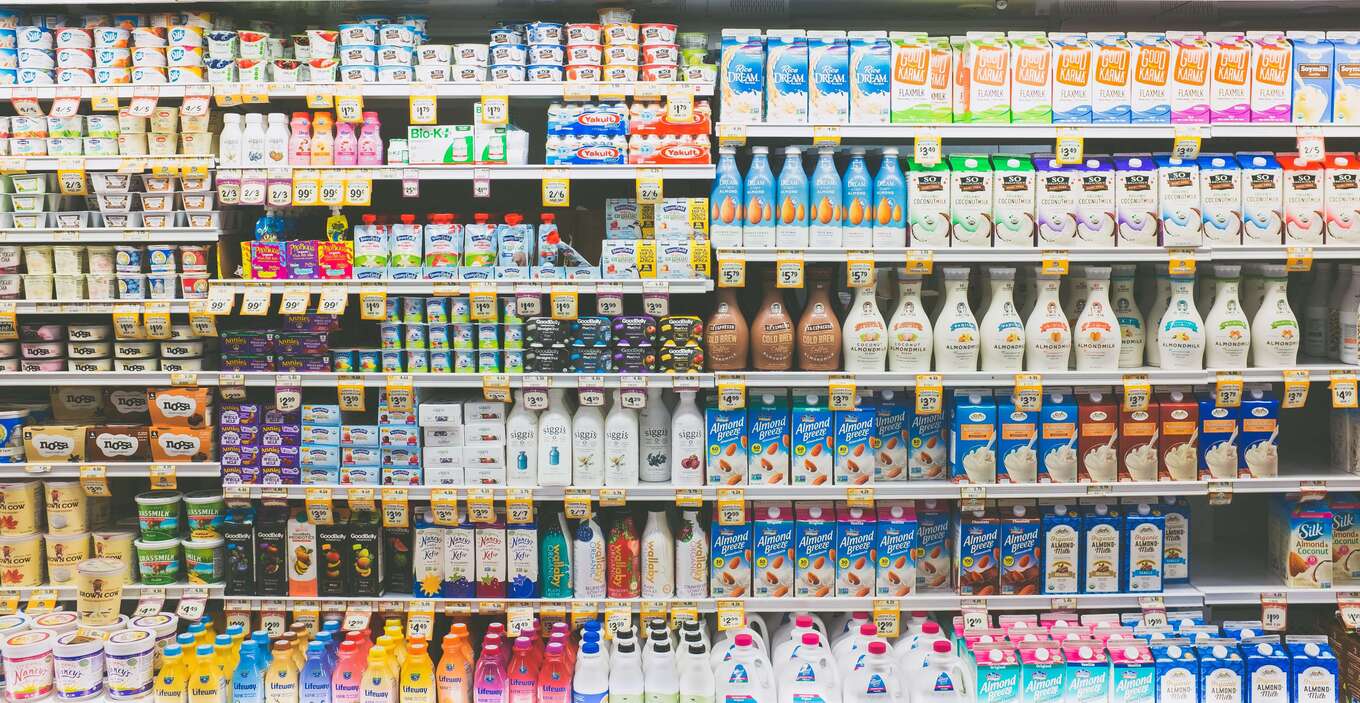 Unsplash
Unsplash
Dan Buckstaff, Chief Marketing Officer for data technology company SPINS, explains that while transparency in labeling is important, consumers are specifically seeking out alternatives to dairy milk based on certain values.
“While plant-based products are not ‘dairy’ in the traditional sense, their placement in the dairy aisle plays an important role in how consumers understand these products,” Buckstaff said. “A shopper is more likely to pick up a product that includes the same terminology as their other products because they see it as a direct alternative and option to replace their previous purchases.”
“While nutritional speaking, plant-based milk and animal-based milk vary in many respects, plant-based milk is driven by consumer values from their desired diet (vegan, flexitarian) to their social causes (sustainability, animal welfare), and part of its appeal comes from its ability to compare itself to animal-based products for consumers who are expressing their values in what they purchase,” he said.
Unfair to plant-based companies?
Plant Based Food Association (PBFA) is a trade group made up of 350 plant-based companies. It cautions that the FDA’s draft guidance puts plant-based dairy products at an unfair disadvantage by assuming that they are inferior to some dairy milk standard—despite the fact that many dairy products contain certain nutrients as a result of fortification.
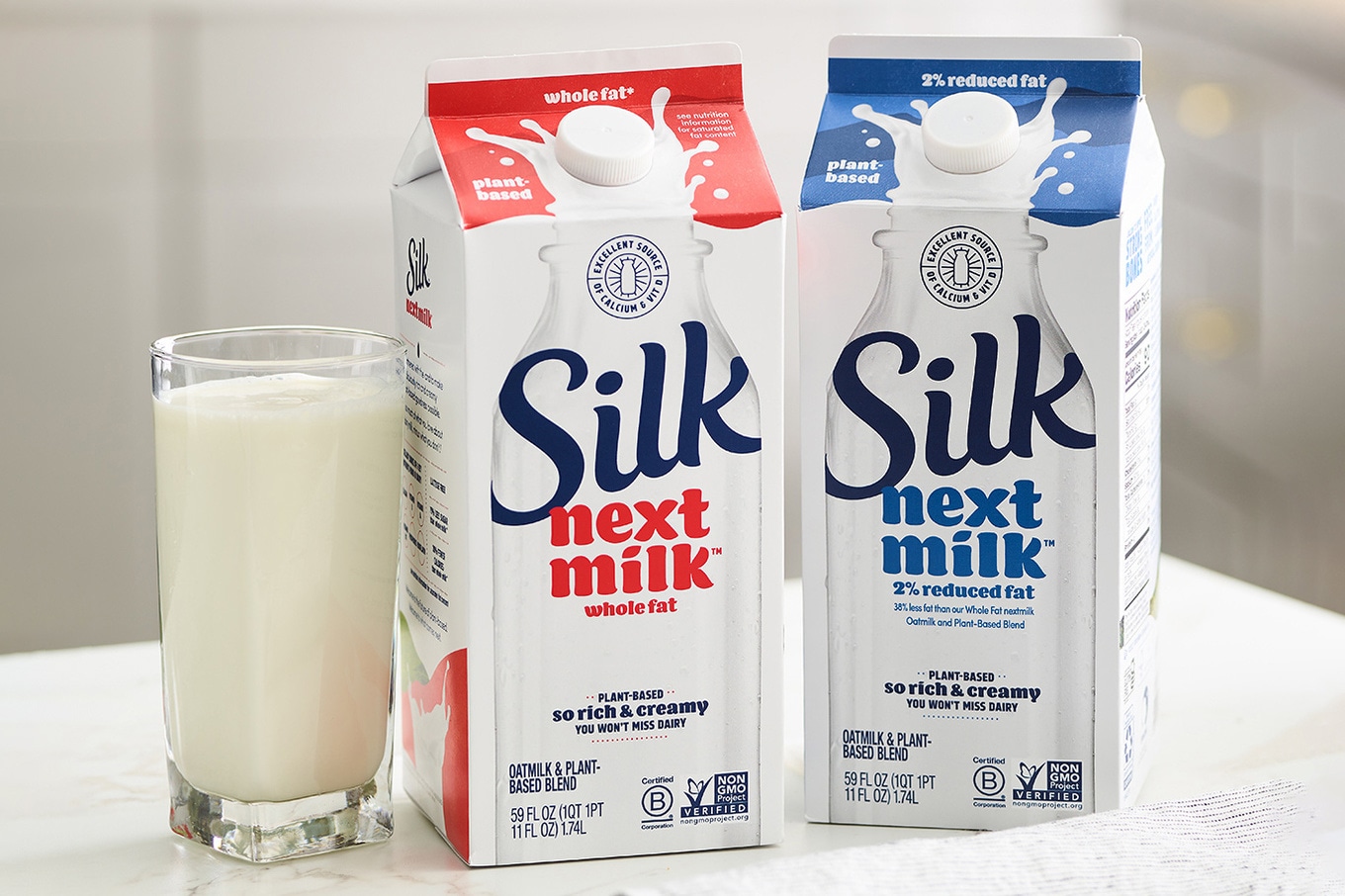 Silk
Silk
“We commend the FDA’s acknowledgement that consumers are affirmatively choosing plant-based milks because of their many benefits for human and planetary health,” PBFA CEO Rachel Dreskin said in a statement.
“However, we see many suggestions in this proposal that are unfairly burdensome to companies, and frankly, treat plant-based products differently than any other foods in the market,” Dreskin said.
The FDA is accepting comments on its proposed guidance and PBFA intends to protect the member companies interests by submitting its comments to the governmental agency.
“We look forward to sharing our feedback with FDA in the coming weeks to ensure the best outcome for our members, for our industry, and for consumers looking for options that align with their needs and values,” Dreskin said.
For the latest vegan news, read:
JUMP TO ... Latest News | Recipes | Guides | Health | Subscribe








